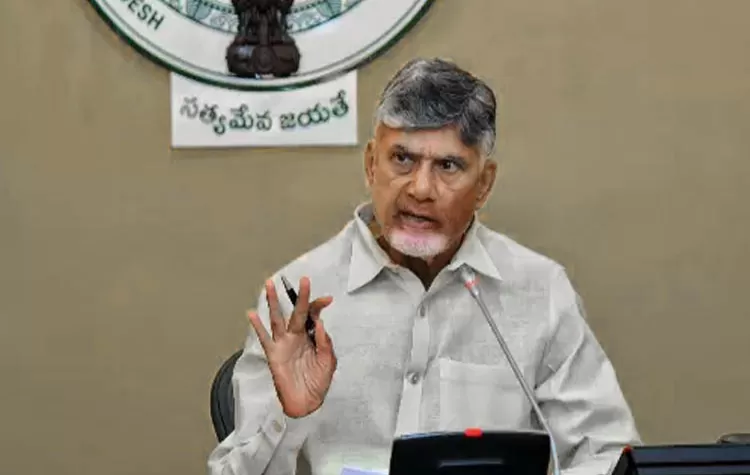
Andhra Pradesh Chief Minister N. Chandrababu Naidu explained the importance of irrigation projects carried out by the Telugu Desam Party in both the Telugu states. At a media conference held at State Secretariat, he said that 90 percent of the irrigation projects in the Telugu states were launched when the TDP was at the helm. He remembered that such landmark projects as Telugu Ganga were agreed upon when the party was in office, including a major agreement that was negotiated in the presence of former Prime Minister Indira Gandhi.
Under this agreement, water from the Srisailam reservoir was diverted through a system of canals to serve Rayalaseema for agricultural purposes. Chandrababu also spoke of his leadership in initiating Veligonda and Thotapalli projects, conceived to mitigate water scarcity and boost agricultural productivity.
Chandrababu observed that water scarcity can turn Rayalaseema into a "Ratnalaseema," meaning flourishing agricultural region. The regions of Rayalaseema, Prakasam, and Nellore districts have been experiencing drought conditions for many years and thus are unable to flourish in terms of agricultural production. Projects like Pattiseema have brought water to the districts during the right season, thus boosting horticulture crops and enhancing the per capita income of Anantapur district.
The CM emphasized the linking of rivers to combat droughts and floods, and further suggested that diversion of at least 200 TMC of water from Godavari to Krishna River would greatly benefit the eastern and western deltas of the Krishna River.
Chandrababu described the Godavari-Banakacharla project as a "game changer" for the state. The plan would divert at least 2 TMC of water every day to the Banakacharla regulator in Kurnool district. With this project, when rivers and reservoirs are being interlinked across joint districts, the water availability for agriculture will increase.
In 2023, Andhra Pradesh received 4,114 TMC of Godavari water into the sea. The need for such projects was thus felt very urgent. With the state reservoirs holding 729 TMC of water as on January 1, 2024, this initiative will give water well in advance for Kharif crops and thus prevent losses due to floods and cyclones among the farmers.
The Godavari-Banakacharla project would be undertaken in three stages:
Estimated at around ₹80,000 crores, it would cost to complete. Provided funding is adequate, this one should be wrapped up in three years, he hoped. Chandrababu also said the discussion about getting support for this endeavour from the Union Finance Ministry and Prime Minister Modi are happening. This one, would turn out to be India's biggest irrigation project so far.
The Godavari-Banakacharla project has enormous things in store -
48,000-acre land will be required for developing the project. Hybrid financing model is also contemplated by the State Government. Andhra Pradesh State Government is even looking at Rajasthan where private companies aid in infrastructure development, an example that has been undertaken for efficient project execution, and maintenance.
Chandrababu concluded by urging a public debate on the Godavari-Banakacharla project, which would transform the future of generations. With green energy and sustainable practices in focus, the state is working to advance its water resource management strategies.
The Detailed Project Report (DPR) for the Godavari-Banakacharla initiative is likely to be ready in 2-3 months, which will open the gates for tender invitations and further progress on this historic project.